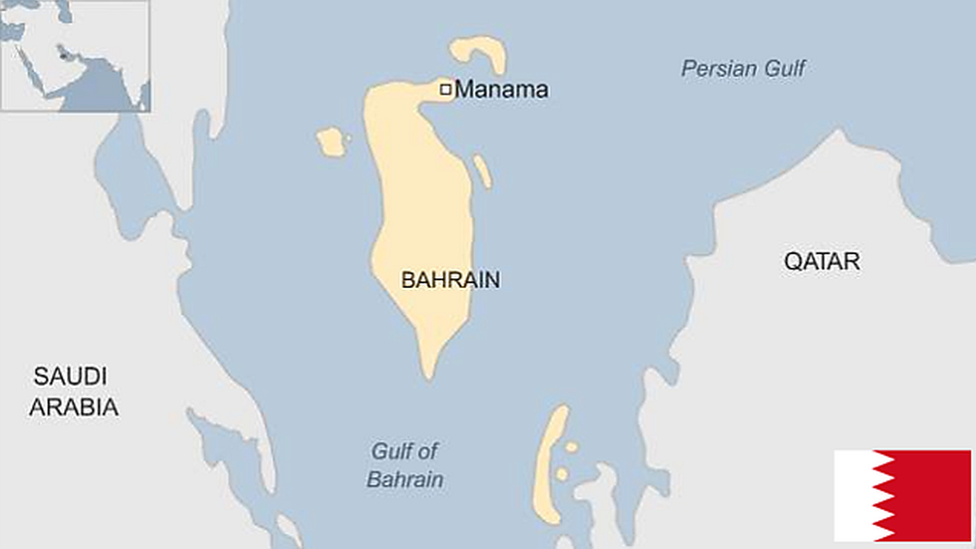Saudi Alarab TV channel halts hours after launch
- Published
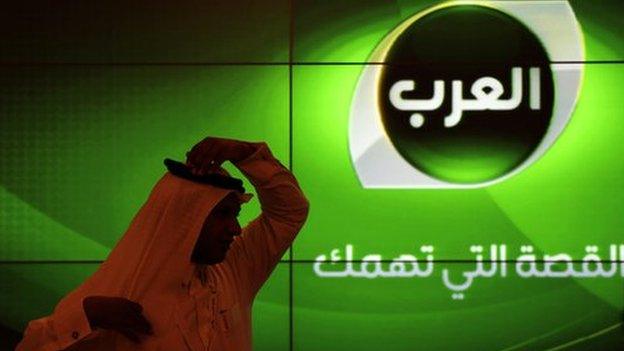
Alarab TV has promised to provide unbiased coverage of Middle Eastern and international news
A new Saudi Arabian pan-Arab news channel has stopped scheduled broadcasting less than 24 hours after going on air from studios in Bahrain.
Alarab TV, owned by billionaire Saudi businessman Prince Alwaleed bin Talal, launched with the promise of politically independent news coverage.
One of its first guests was a prominent Bahraini opposition figure, drawing criticism from pro-government media.
Alarab said it had stopped for "technical and administrative reasons".
The channel reverted to showing promotional video and said it would be "back soon".
Bahrain's information ministry said: "Progamming at Al-Arab satellite channel has been temporarily suspended for administrative and technical purposes.
"The Information Affairs Authority continues to work alongside Al-Arab's management team in order to swiftly resolve the matter, which is expected to see broadcasting resume shortly."
Bahrain daily, Akhbar al-Khaleej, claimed the suspension was due to the channel "not adhering to the norms prevalent in Gulf countries".
Khalil Marzook, a prominent critic of Bahrain's ruling Sunni royal family, appeared in an initial sequence on the channel.
During the interview, Mr Marzook discussed the Bahraini government's decision on Saturday to strip 72 people of their citizenship.
Last year Mr Marzook, assistant secretary general of Bahrain's main opposition group, Wefaq, was cleared of charges including "inciting terrorism".
Bahrain has been wracked by unrest since a Shia-led uprising in 2011 pushing for greater rights from the Sunni-led government.
Alarab is the latest pan-Arab TV channel to enter the market, following the likes of Qatar's Al-Jazeera and Saudi Dubai-based Al-Arabiya.
Jamal Kashoggi, Alarab's general manager, told AFP the channel had chosen to transmit from Bahrain because Saudi Arabia did not allow "independent" channels.
- Published31 January 2015
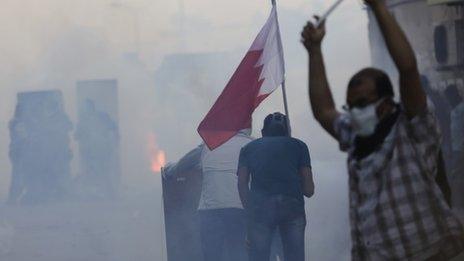
- Published22 November 2014
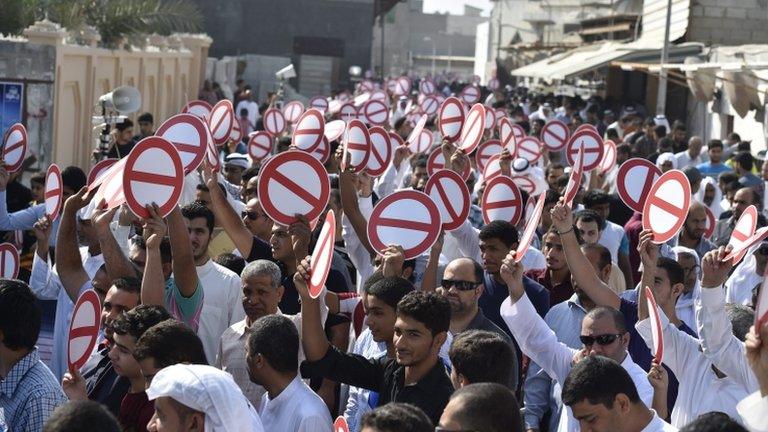
- Published21 January 2015
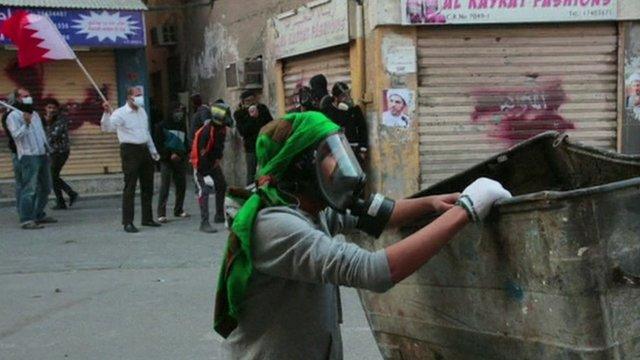
- Published21 August 2023
